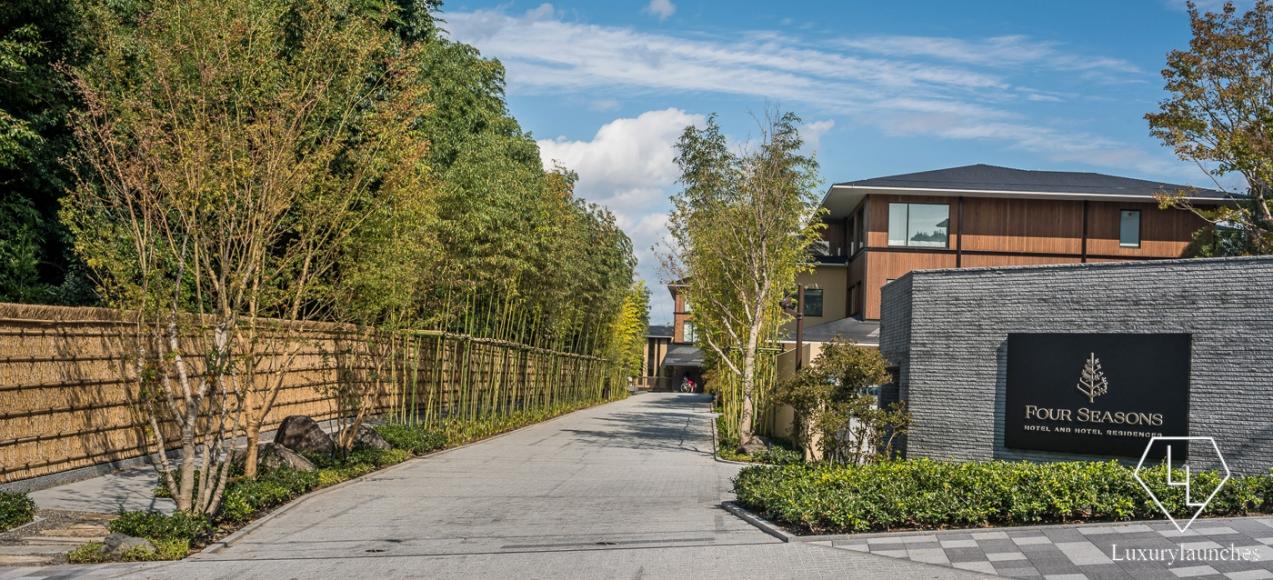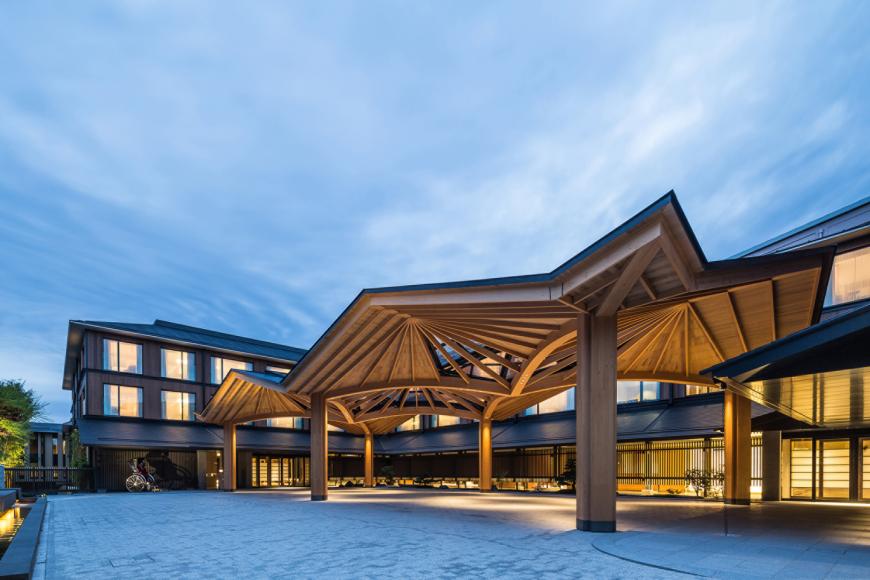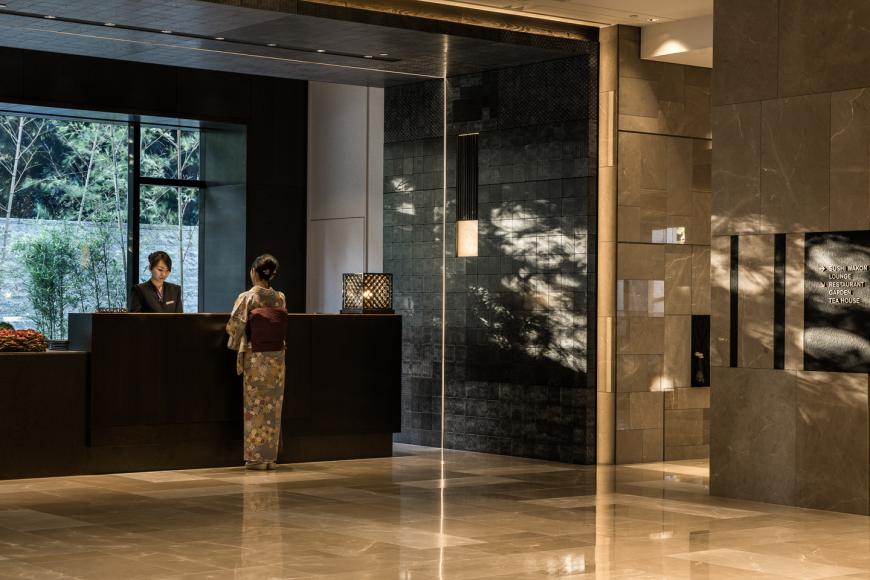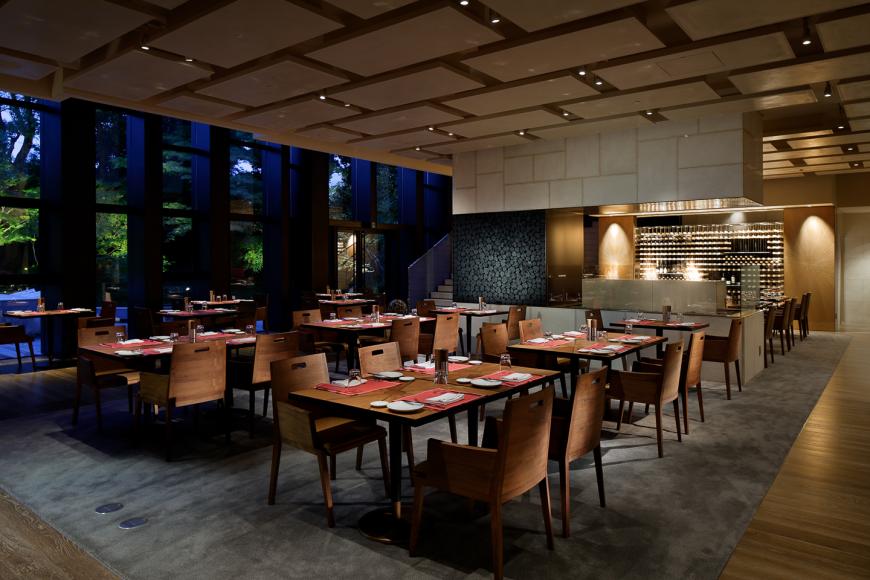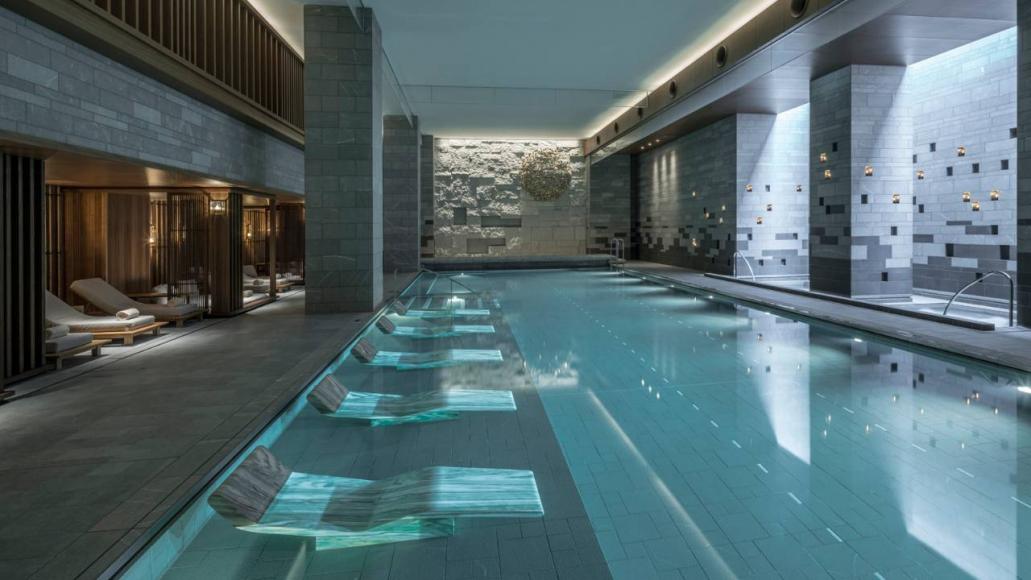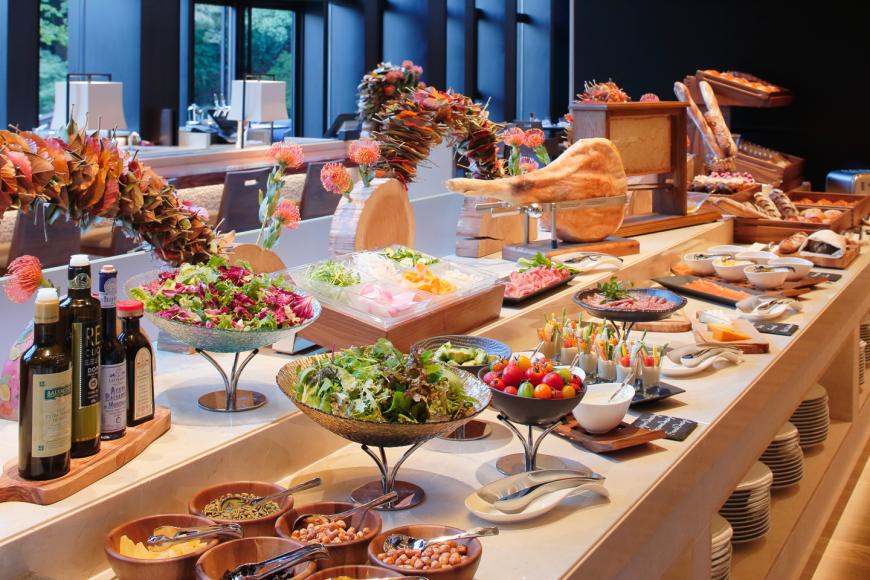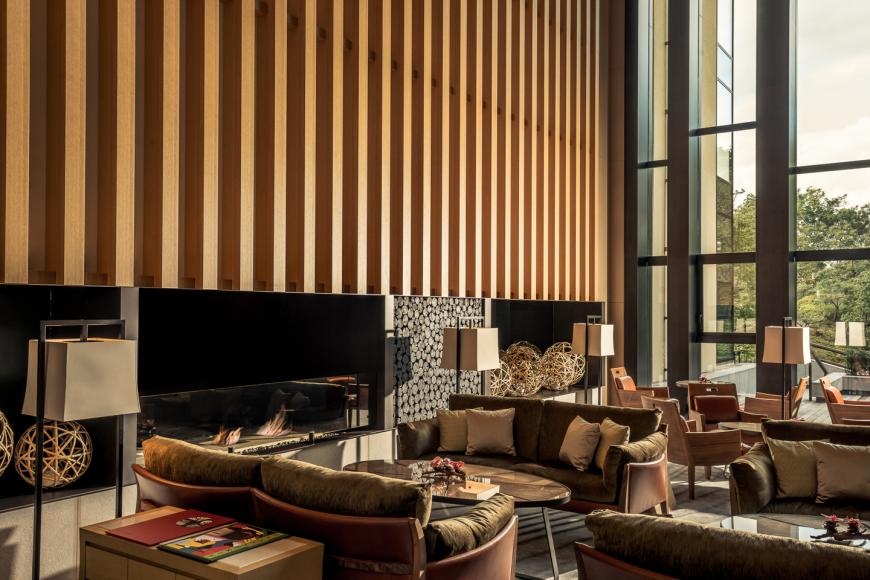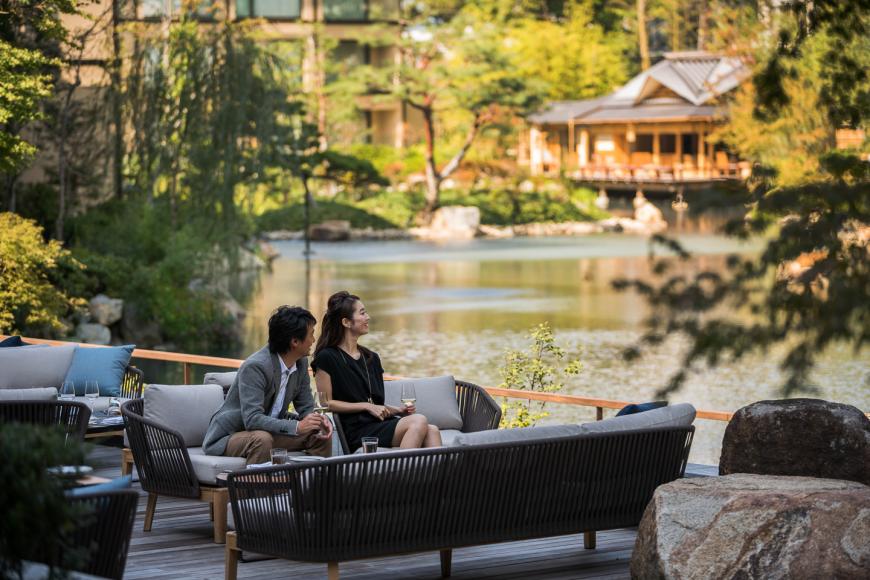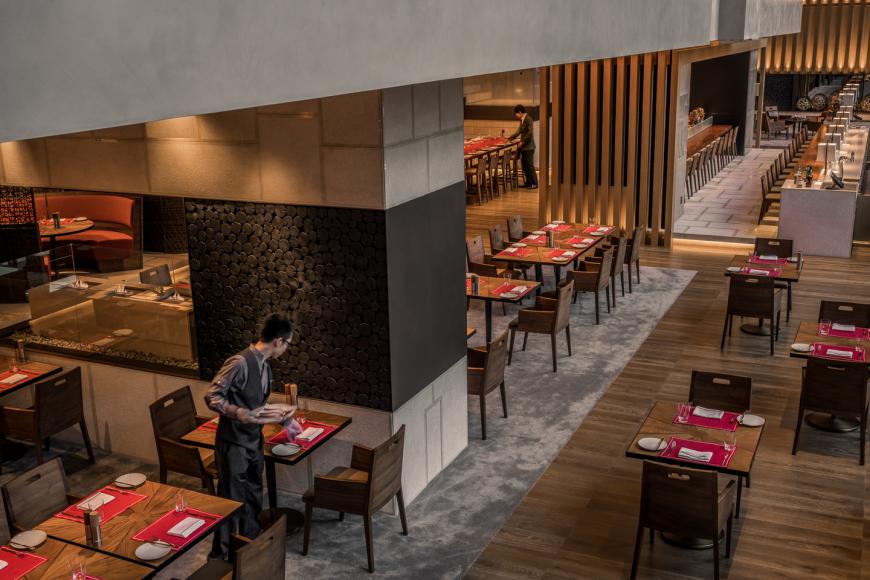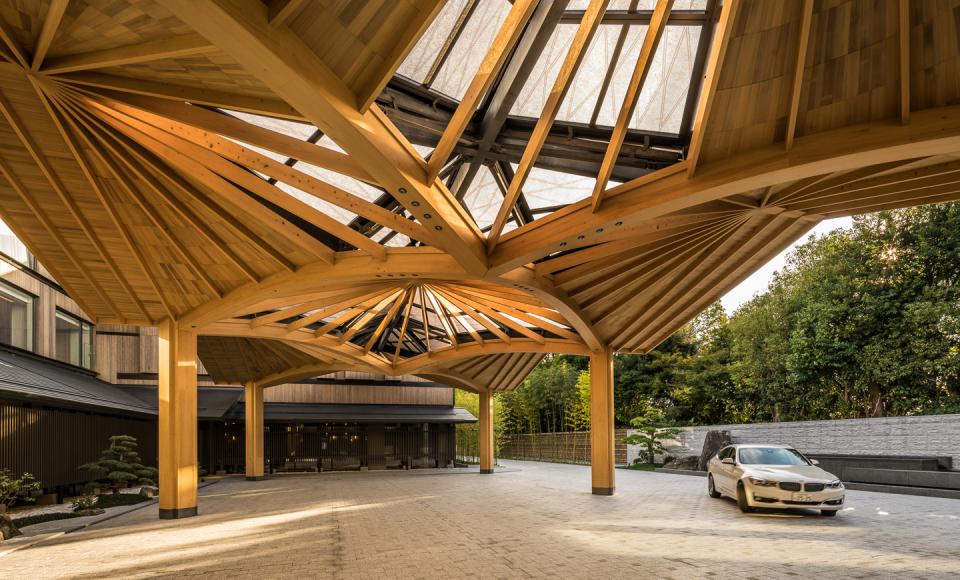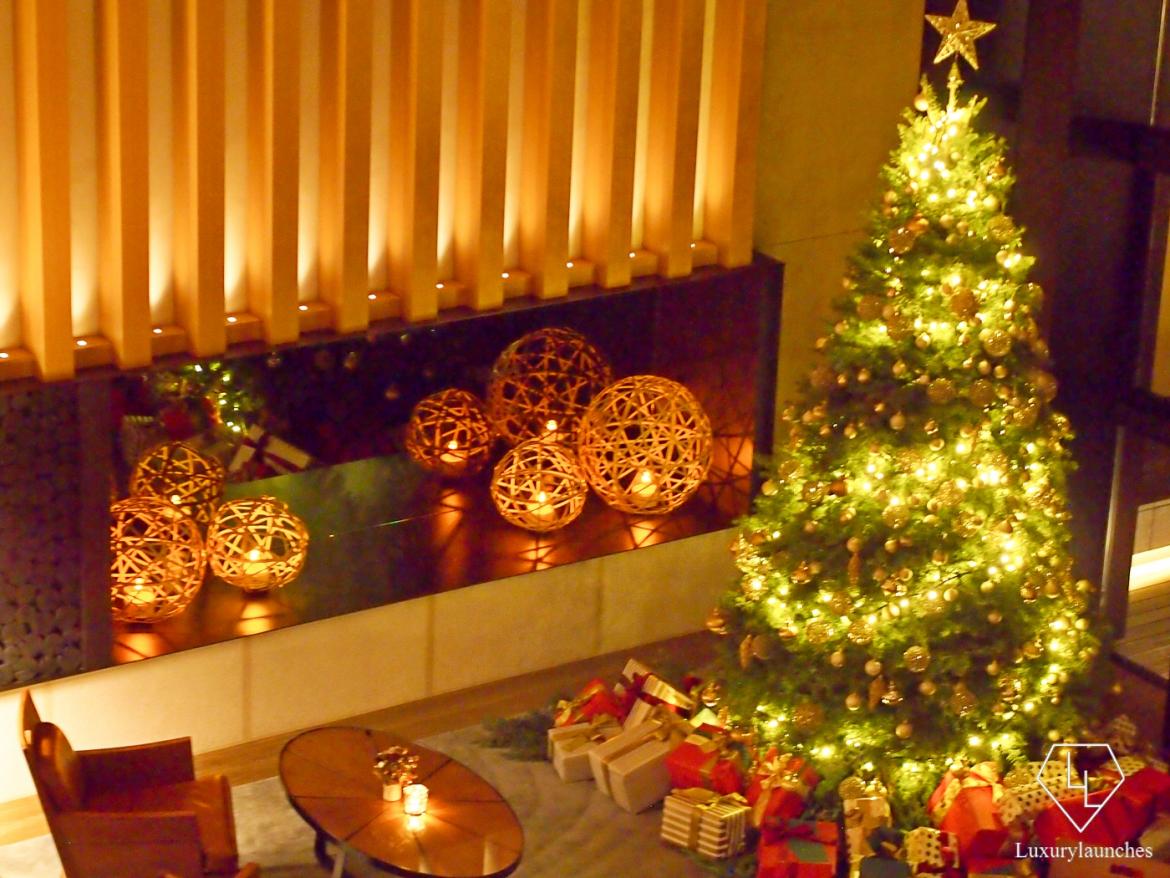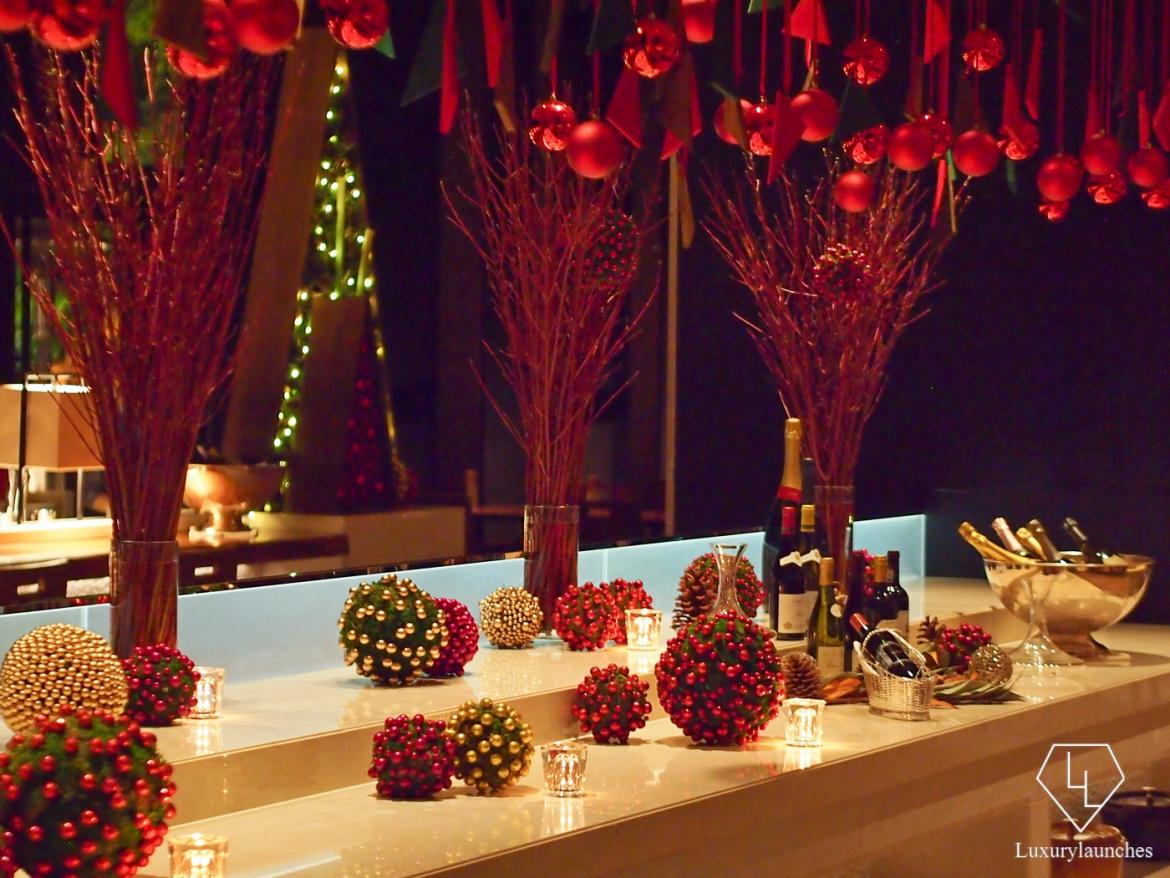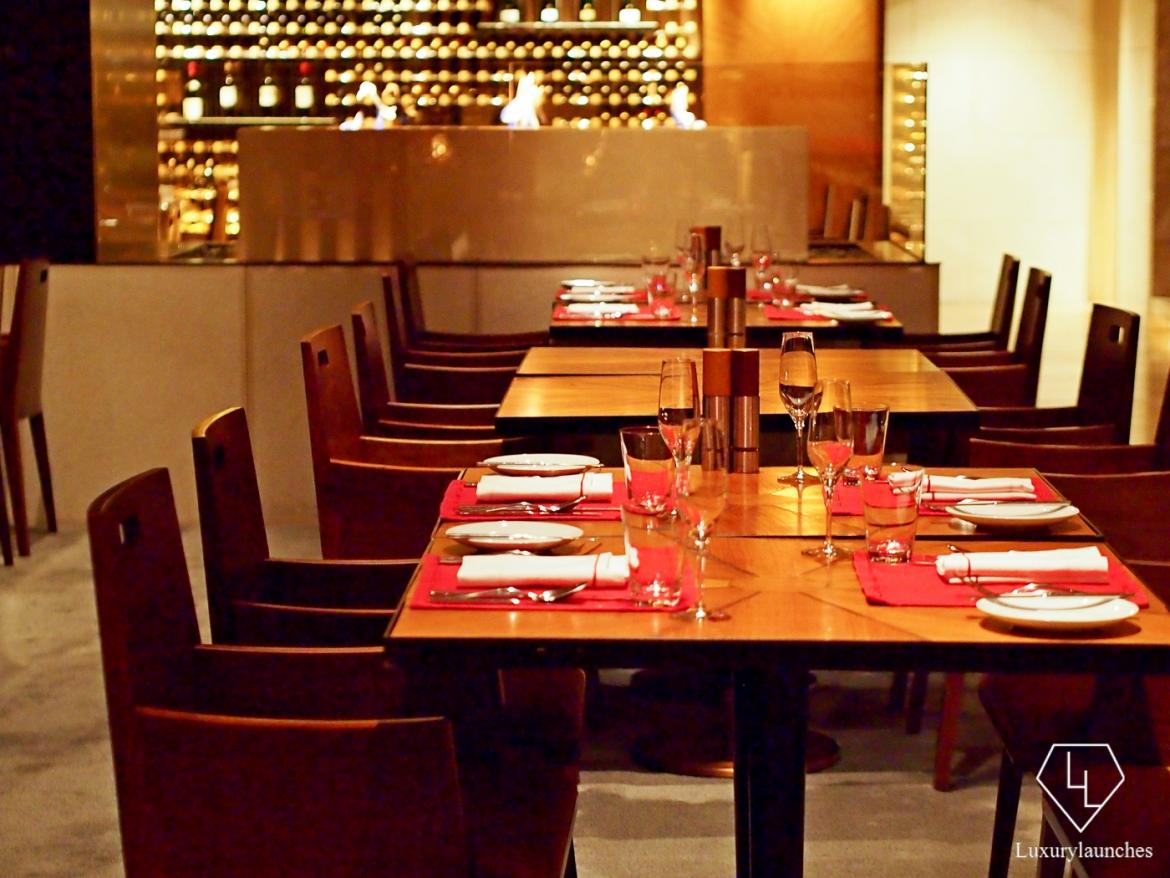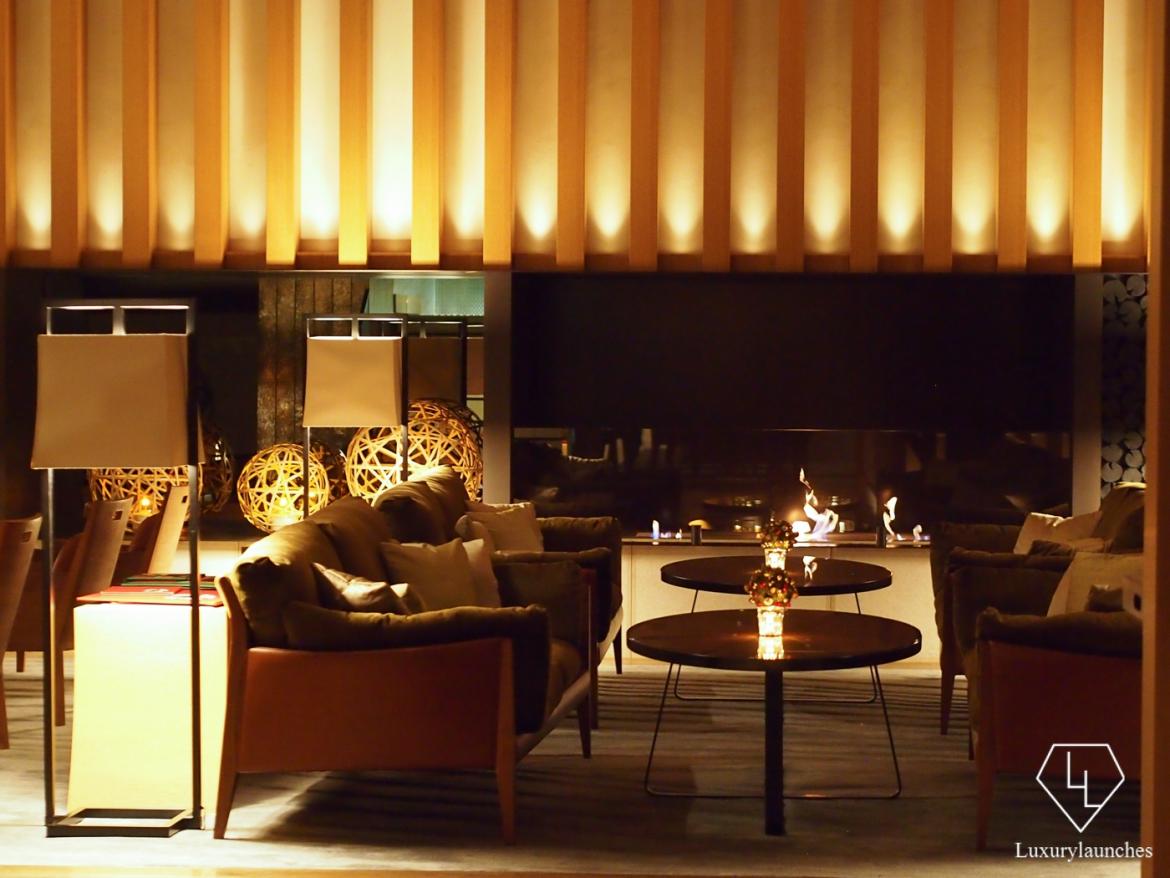Since opening about 1 year ago, Four Seasons Kyoto has been an impressive new addition to the city’s range of luxury hotels. Set in the historic temple district, the 123 room hotel is a beautiful, tranquil oasis combining clean, minimalistic Japanese esthetics with the latest high-tech features and comforts.
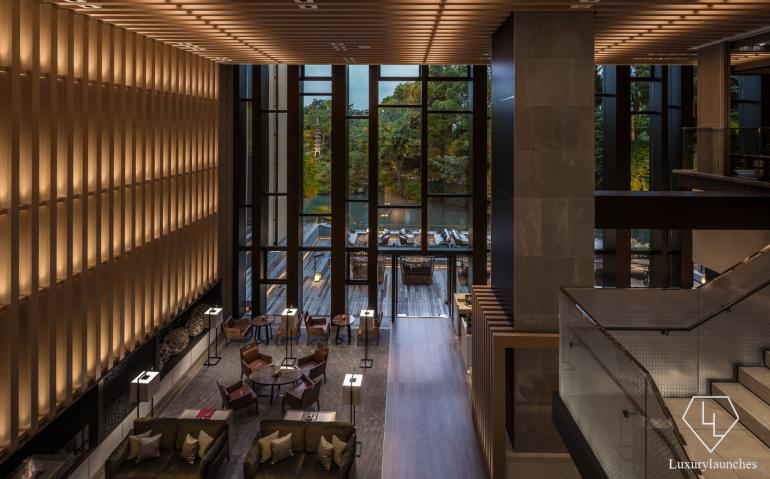
At the heart of the hotel is an 800-year-old pond garden, once owned by a wealthy Samurai family. Many guest rooms overlook the garden, but perhaps the best way to enjoy it is with a relaxed and casual meal at Brasserie restaurant where 9-meter high windows offer dazzling views of the garden’s maple and cherry trees, rock formations and carp fish. In warmer weather, guests can even dine outside on the garden terrace.
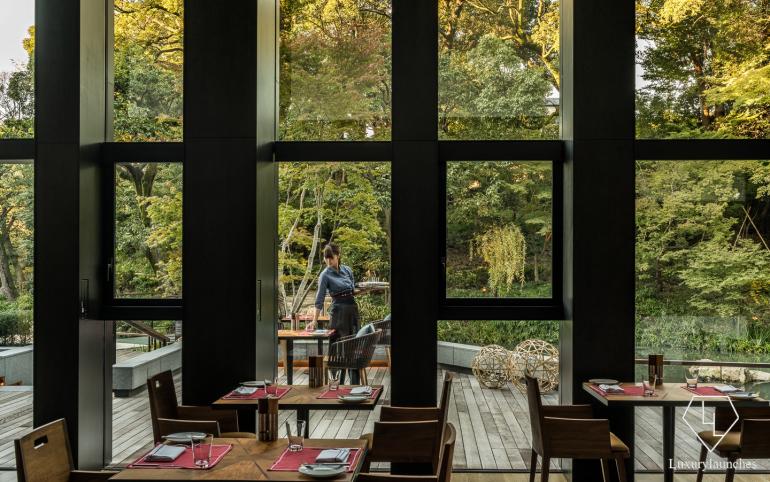
I recently had the pleasure of dining at Brasserie where Chef Tsuyoshi Iryo masterfully creates modern Japanese-European fusion dishes using the freshest local ingredients. My dinner was hosted by two members from Four Seasons hotel who graciously explained to me the intricacies of the dishes we were about to enjoy.
To get to Brasserie, you first need to descend two flights of square, spiral stairs during which time you are afforded different vantage points of the restaurant below.
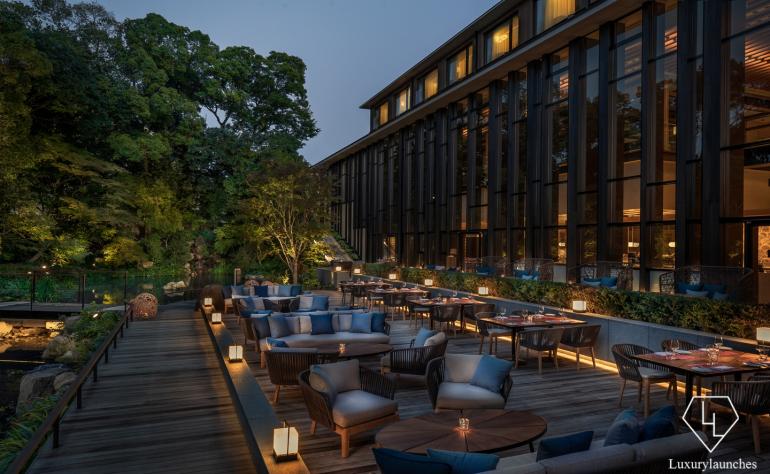
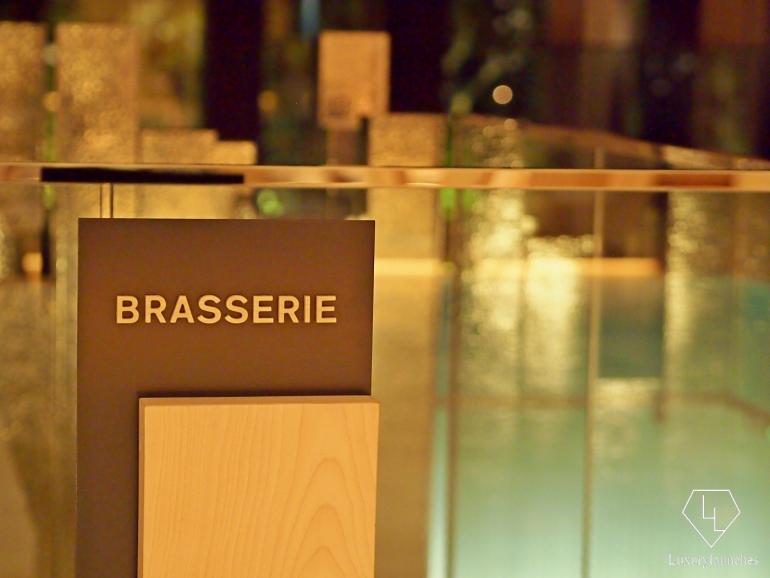
For the holiday season, the dining room was adorned with festive decoration and a lit fireplace cast a warm, cozy atmosphere throughout.
We began with a sampler of locally brewed craft beers. The knowledgeable bartender explained that the
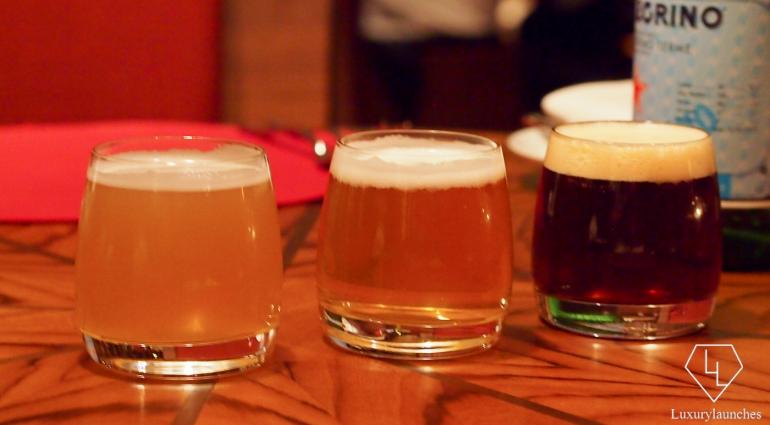
beer comes from Kizakura Kyoto Bakushu, one of two beer breweries in Kyoto. From left to right, we had Blue Nile – a fragrant and citrusy ale similar to a Belgian white, made with yuzu (a Japanese citrus fruit), coriander and an heirloom durum wheat cultivated in ancient Egypt. In the middle was Kuranokaori – a lager fermented with sake yeast that had a distinct yeasty aroma. At the right was Kyoto Classic – a robustly flavoured red IPA with hoppy and floral notes.
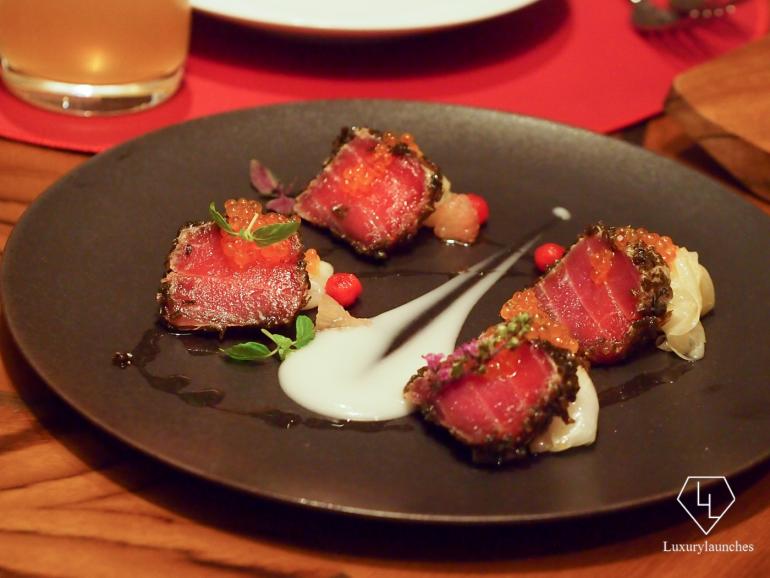
Appetizers
For appetizers, I was recommended to try the Konbu Crusted Maguro Tuna (¥2,600) and at first I was not too excited by the sound of the dish since
“my previous experiences with the lean maguro tuna were rather lackluster and tasteless, but one bite of the Brasserie’s version and I was happy to eat my words!”
The maguro was deeply marinated to achieve a meaty, umami flavour aided by the konbu seaweed and the texture was oh so buttery and soft that the tuna melted in my mouth. The grapefruit salad and white radish puree acted as a refreshing palate cleanser.
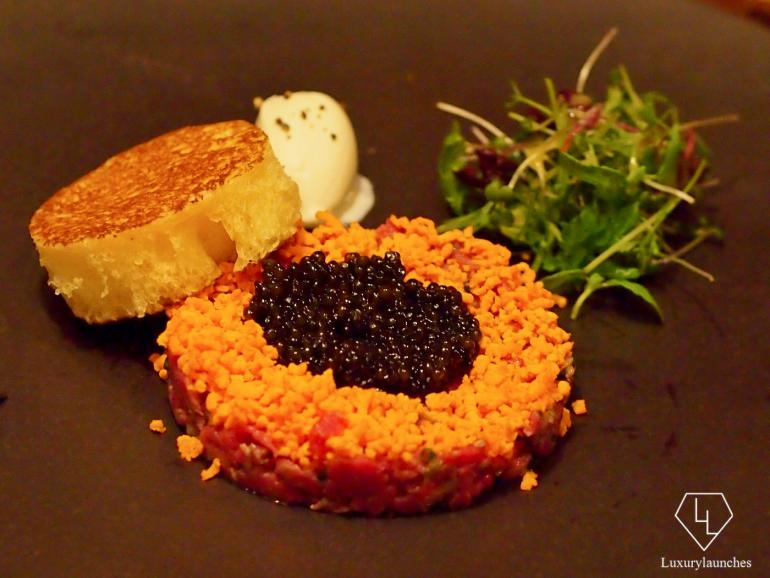
Next, the Hand Chopped Kyoto Wagyu Beef Tartare (¥3,600).
“One look at the presentation and I knew this was no ordinary beef tartare.”
Firstly, every beef tartare I’ve eaten usually had some type of raw egg yolk, be it chicken or quail, on top. Mixing the raw egg yolk would create a wet sauce for the beef. However, Brasserie’s beef tartare was topped with an outer ring of finely-chopped hard-boiled chicken egg and an inner circle of Oscietra caviar.
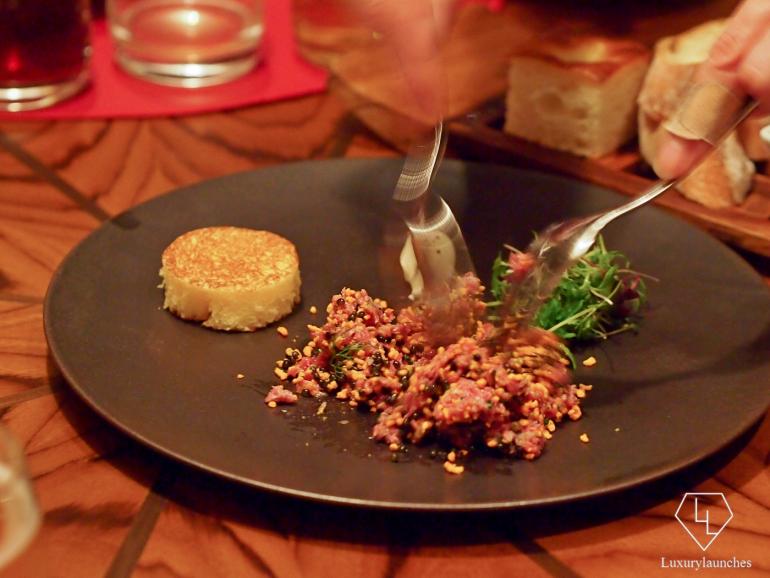
The ensemble was mixed for us at the table and soon we were ready to try this curious concoction.
“Upon tasting it, the beef had a lovely, lush and velvety texture.”
Any sauces added to the tartare had already been absorbed by the finely minced beef. The flavour was a delicate balance between the natural sweetness of wagyu beef and salty, briny bursts from the caviar. When eaten together with the round of warm, freshly baked brioche bread and the cool, rich sour cream,
“it was a truly, luxurious beef tartare.”
This very unique and inventive dish was anchored to the realm of everyday by the familiar taste of Worchester sauce reminding me of a hamburger, a very extravagant hamburger.
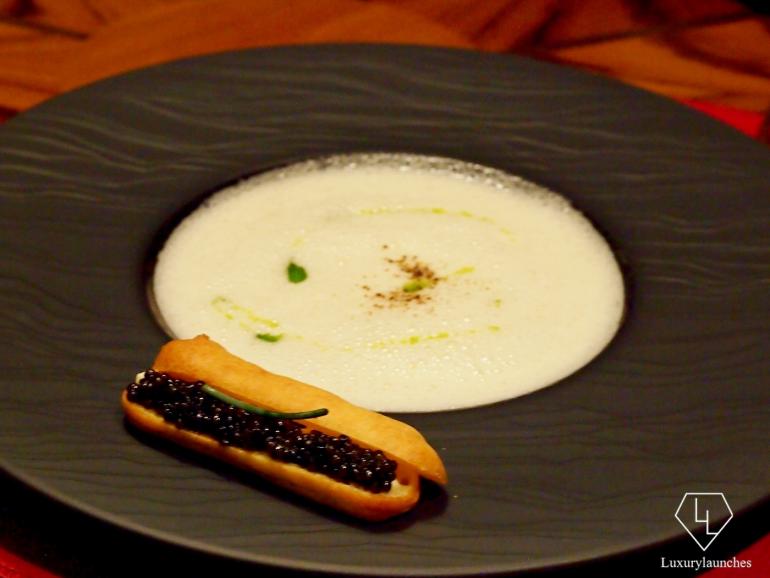
Our last appetizer was Cauliflower Soup (¥2,200), a sophisticated dish where the elements are distilled into pure, fundamental taste sensations of sweet, salty and sour.
The cauliflower was clean, milky and sweet. The éclair filled with salty Oscietra caviar and tart, sour cream provided genius complement to the cauliflower’s sweetness.
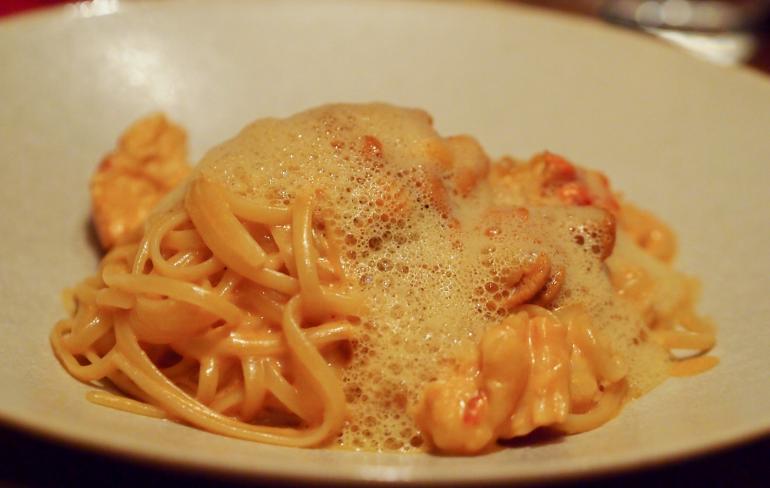
Main Courses
Moving on to the main courses, the dish I was most interested to try was Linguine Lobster and Sea Urchin Cream Sauce (¥3,000) with lobster foam and it far exceeded all my expectations.
Thin linguine noodles were bathed in the most intense, deeply flavoured lobster bisque sauce with creamy richness from the sea urchin. The chunks of lobster were cooked perfectly, retaining a succulent, flaky texture.
“This seafood pasta was like a love poem to the ocean…so eloquently it expressed the delights that the ocean has to offer, so rapturous the feelings it elicited from the one lucky enough to eat it.”
This dish normally appears on Brasserie’s lunch menu, but the restaurant made a special concession to serve it to me at dinner. I can imagine how the experience of eating this could be even better at lunch when the floor-to-ceiling windows let in copious amounts of sunshine, making the dining room shine in a golden glow.
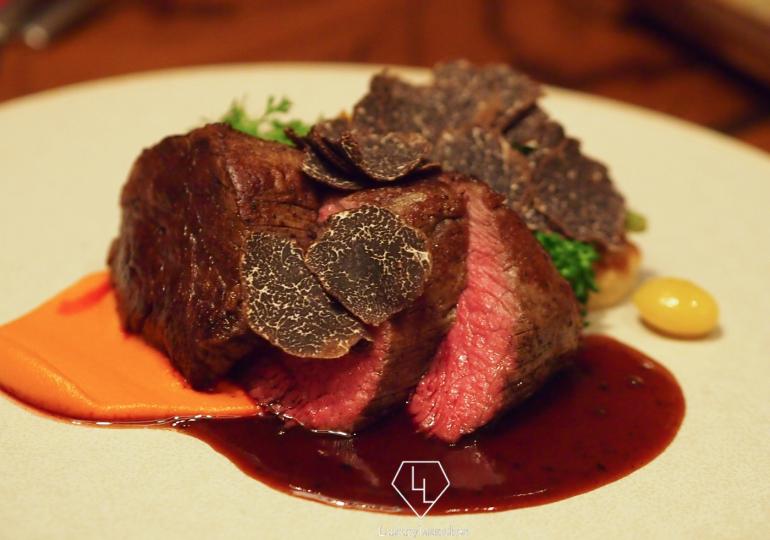
Being in Japan, I wanted to eat as much of the famed wagyu beef as I could get and opted for Kyoto Wagyu Tenderloin (¥12,000).
“Since tenderloin is a very lean cut, this beef was a nice change from the usual wagyu that has more fat than meat.”
This A4 wagyu was still very tender and you hardly needed a knife to cut it, just push down gently with a utensil and the beef will give way.
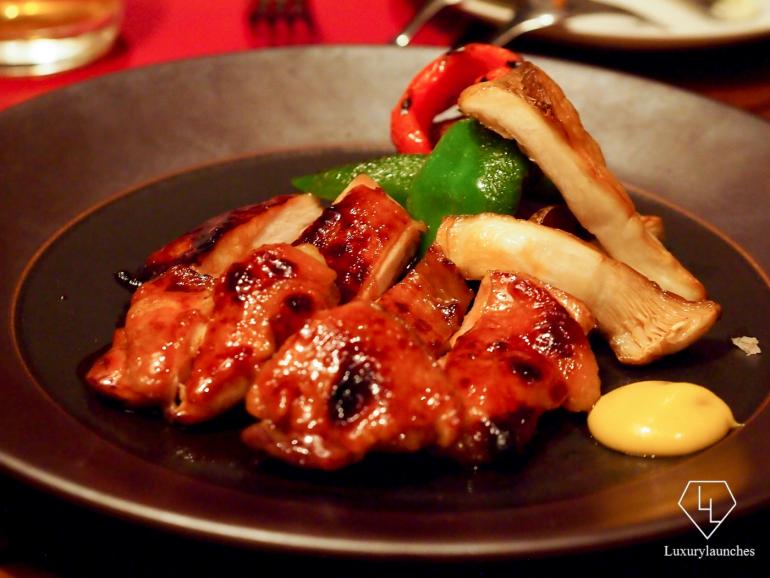
Lastly, we had Tamba Chicken Teriyaki (¥3,200), made with Tamba chicken, a special free-range chicken organically raised in Kyoto that has a chewier texture and more flavour than normal chickens.
“The chicken skin was cooked to a crisp with a thin amount of luscious fat underneath.”
Indeed, the chicken was chewier than normal and this extra amount of chewing lets you enjoy the flavour of the chicken longer.
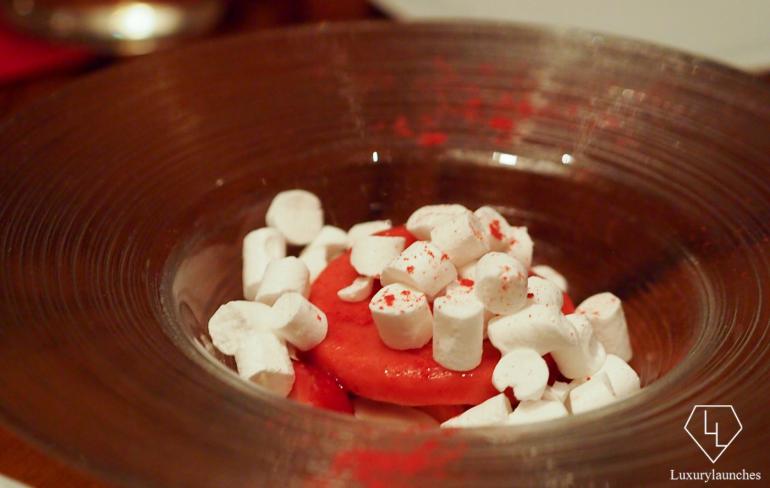
Desserts
For desserts, I was drawn to the mention of Japanese strawberries on the menu and instantly had to order Japanese Winter Strawberry Vacherin (¥1,800). Winter is the season for strawberries in Japan and all around you can see plump, bright red Japanese strawberries for sale. In this dessert, a layer of chopped strawberries and fromage blanc is covered with a disk of strawberry sorbet and sprinkled over with meringue that was amusingly shaped to resembled mini-marshmallows.
The meringue added a crunchy texture and the sorbet contributed a cool smoothness, while the highlight of the dish was certainly the sweet Japanese strawberries.
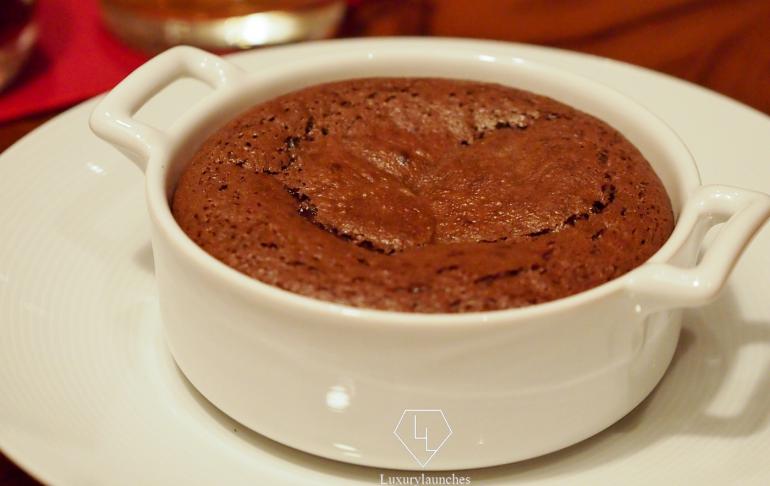
Our second dessert was a textbook perfect Chocolate Fondant (¥2,000) that you can readily sink your spoon into. Made with Valrhona Araguani 72% dark chocolate, this pudding cake has an intense chocolatey flavour.
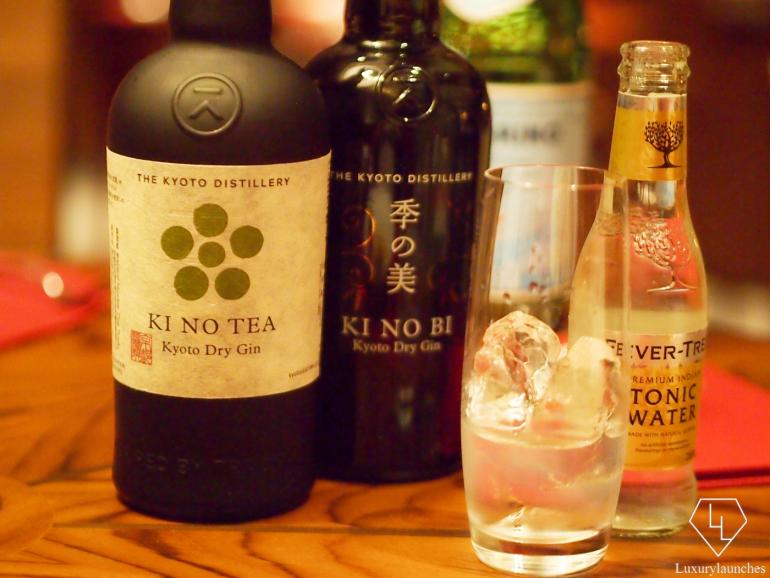
As a final showcase of local products, we were treated to some Kyoto gin from The Kyoto Distillery. One of the gins was a limited release product infused with green tea and you can clearly discern the matcha flavour in the aftertaste.
Verdict
I was very impressed with Chef Tsuyoshi Iryo’s meticulous execution and his inventiveness for creating new eating sensations highlighting fresh, local produce. If you ever get a chance to dine at Brasserie, Four Seasons Kyoto, do not hesitate to take it. Meanwhile, I will be dreaming about the next time I can return to taste that heavenly lobster and sea urchin linguine and luxurious wagyu beef tartare again.
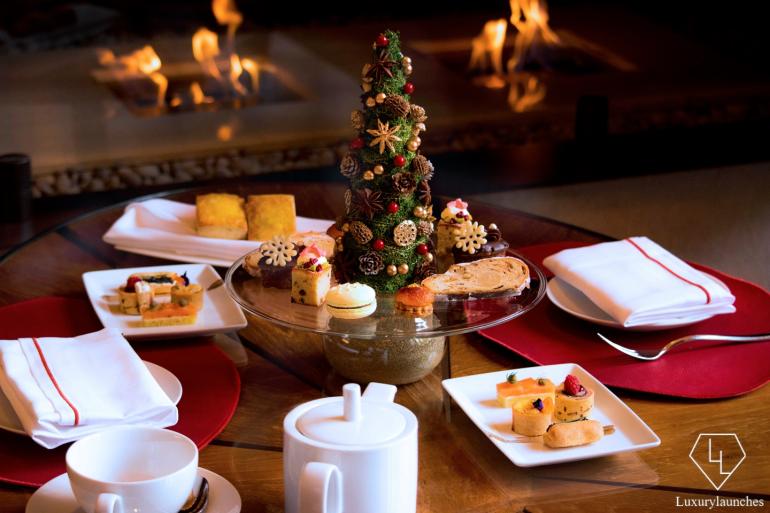
Brasserie serves buffet breakfast, lunch, afternoon tea and dinner. The afternoon tea is another good reason to visit Brasserie as they have a co-operation with Danish florist Nicolai Bergmann. The handmade sweets and savouries, along with the floral centerpieces are created each season to reflect the changes in nature, paired with premium Ronnefeldt tea.
Where: Brasserie, Four Seasons Kyoto
445-3, Myohoin Maekawa-cho
Higashiyama-ku, Kyoto, Japan
Phone: +81 75 541 8288
Note: The critic was invited by Four Seasons, Kyoto, but all the opinions expressed herewith are her own
